
Preparation for health informatics master’s thesis: reflections and data
As you prepare for your thesis semester in the Health Informatics joint master’s program at Karolinska Institutet and Stockholm University, I hope you are ready for what is likely to be a challenging semester. I wanted to share some general advice, as well as share some data to help you gauge various factors involved in your preparations. I am usually one of your Instagram digital ambassadors rather than a blogger, so I will recap my background: I studied biochemistry and journalism at the University of Washington and worked as a journalist, research scientist, medical assistant, and math/biology tutor before starting my master’s program. I was a health sciences person trying to transition into technical work, and I had never written a thesis before this program.
Let’s start with a little bit of data from my class. On a scale from 1 to 5, where 1 is like eating cake and 5 is the most stressful academic event ever – how stressful was it to establish the thesis project?
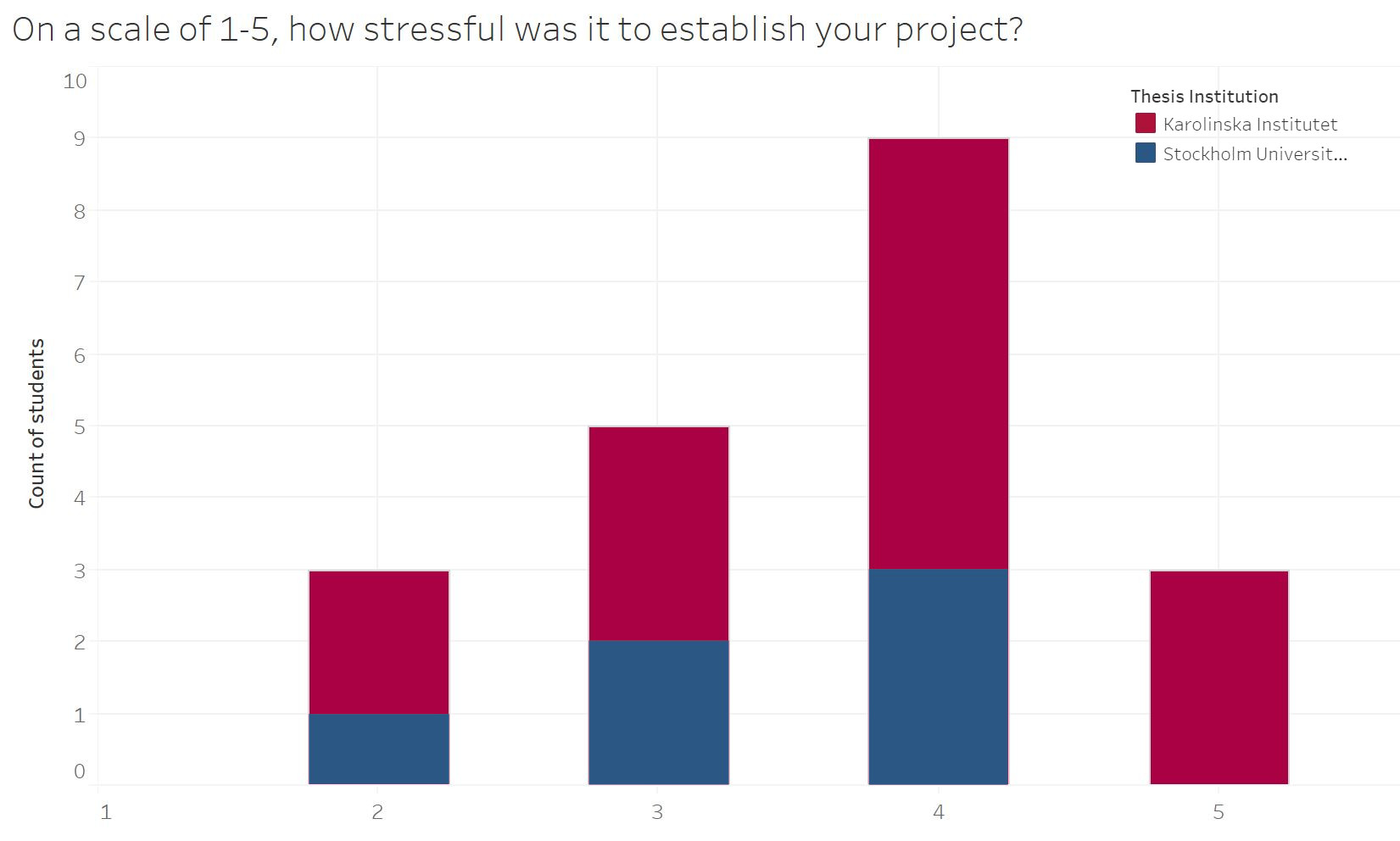
If you enter the program without a semblance of what your thesis might be about (no worries, that was me ), take the time to explore anything that is interesting to you. As someone coming from a non-technical background, I had to do a lot of work to explore and understand which technical areas I could work in. A couple of ways to do this from the first year is to pay attention to all those Facebook events in order to:
- Attend conferences
- Keep an eye out for companies that are doing work that align with your passions and values (also via LinkedIn, job fairs, conferences, etc.)
- Talk to people! – your professors, classmates, students in other programs, alumni, strangers at networking events
- Attend events at KI, SU, and nearby schools like the Royal Institute of Technology (KTH)
I asked students who responded to my survey which program courses contributed to their thesis project the most.
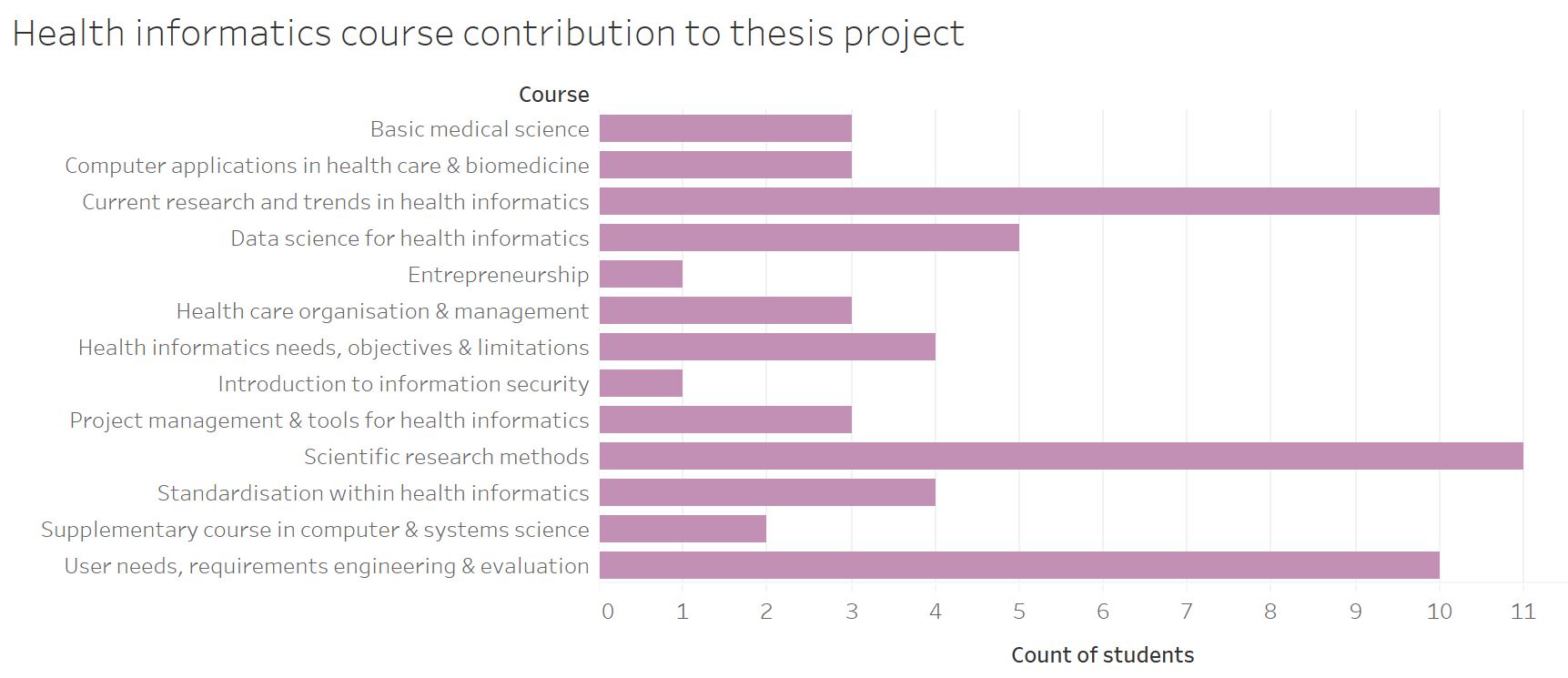
I preferred to work with a company rather than a research group because I was confident that I want to work in industry rather than academia. When the third semester of school started, I was late to start actively applying to projects. This led to a lot of anxiety and frenzied weeks during November and December. To find a project I did the following:
- applied to master’s thesis internship positions online
- attended a career fair at KTH
- contacted research groups from various schools and organizations
- talked to speakers from companies to get connections to their technical/informatics colleagues
- looked at theses from previous students
Various issues arose: one company could only take one student that semester and chose someone else; two research groups were interested but they would not have data available until the spring or summer; a German company only accepted German-speaking students; and others simply rejected me.
By the end of December, I had interviewed at two places that were doing amazing work and wanted me to join them! I made my decision based on finances, location, and growth-opportunity. I found the company by reading a thesis by a former student that seemed intriguing. I wanted to see what she was doing now that she had graduated. She happened to be working at the company, so I applied there and found my thesis company.
I was advised at the beginning of my thesis semester to focus on what I wanted to learn during this time, and not become too overwhelmed with having the perfect or most interesting topic. I outlined which skills I wanted to learn, though I still think my topic is very interesting (I am investigating different dimensionality reduction techniques to manage electronic health record data to improve predictions of readmission and mortality rates). I have learned the skills I aimed to learn, but to be transparent, I also ended up taking an extension and I submitted my thesis at the end of August.
Now let’s get to that data! Tableau visuals cannot be embedded on wordpress.com but they can be accessed here and here.
Of the 43 students who were registered for their degree project during the spring 2019 semester, 29 presented their thesis defense in May 2019. The following are responses from 20 students completing the degree project, including myself. Of the respondents, 14 completed their theses with KI, while 6 completed theirs with SU. Almost all the respondents completed their theses in Sweden, except for two who conducted their work in the United Kingdom and Taiwan.
Though people thought of their thesis ideas over various spans of time, everyone established their project between November and January.
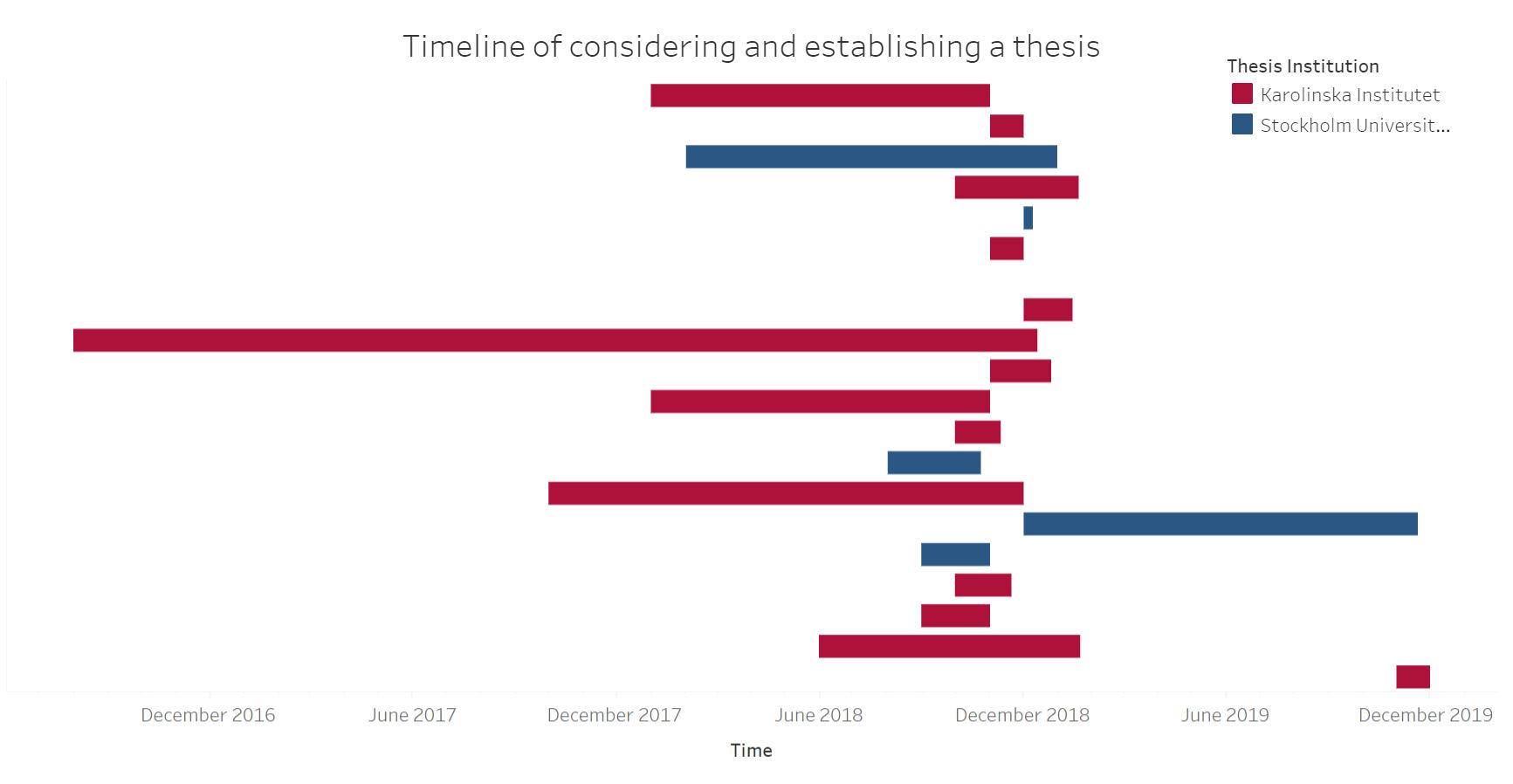
Nine students chose their supervisors while 11 were assigned theirs.
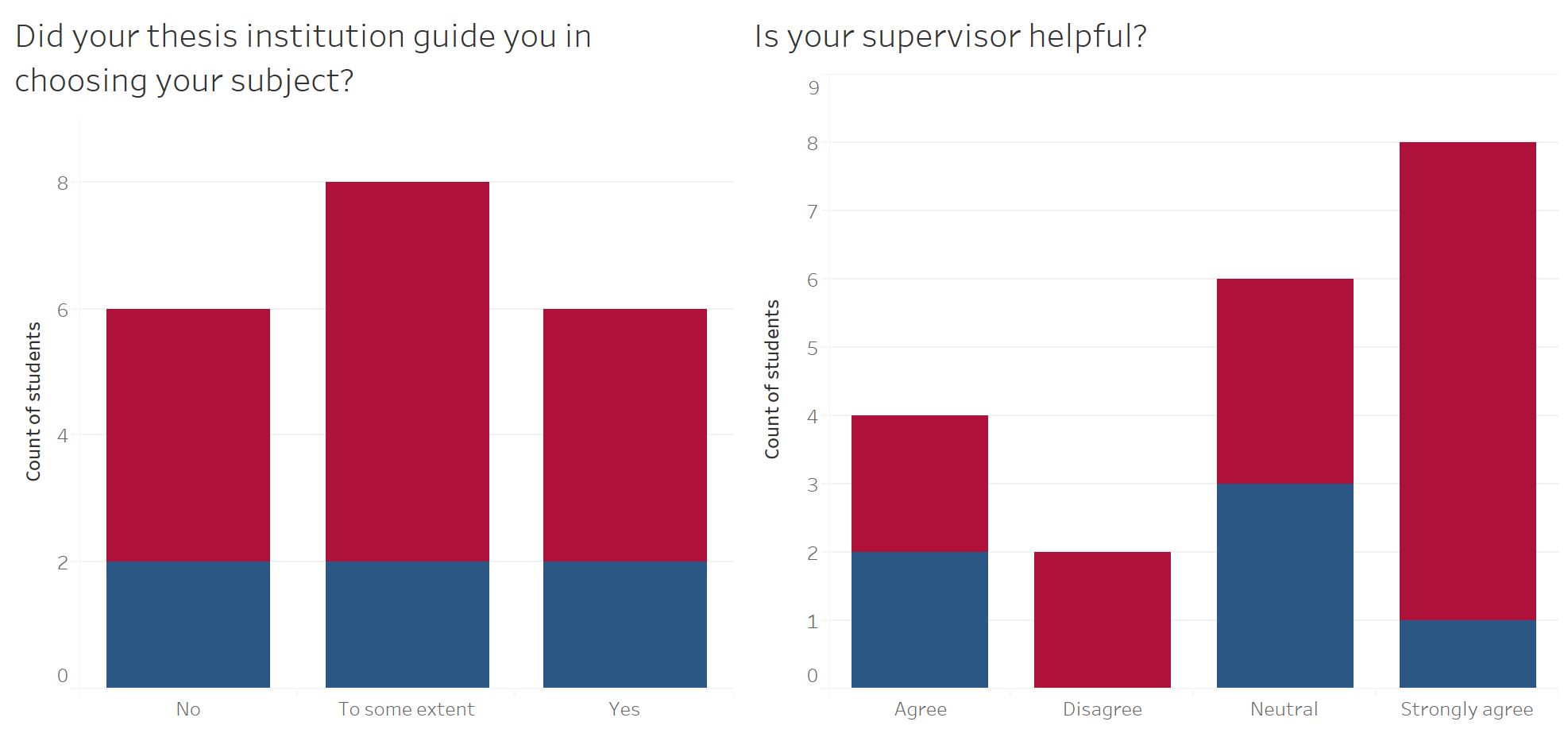
There is a lot of variability in the details of the respondents theses, but most students completed an independent thesis.
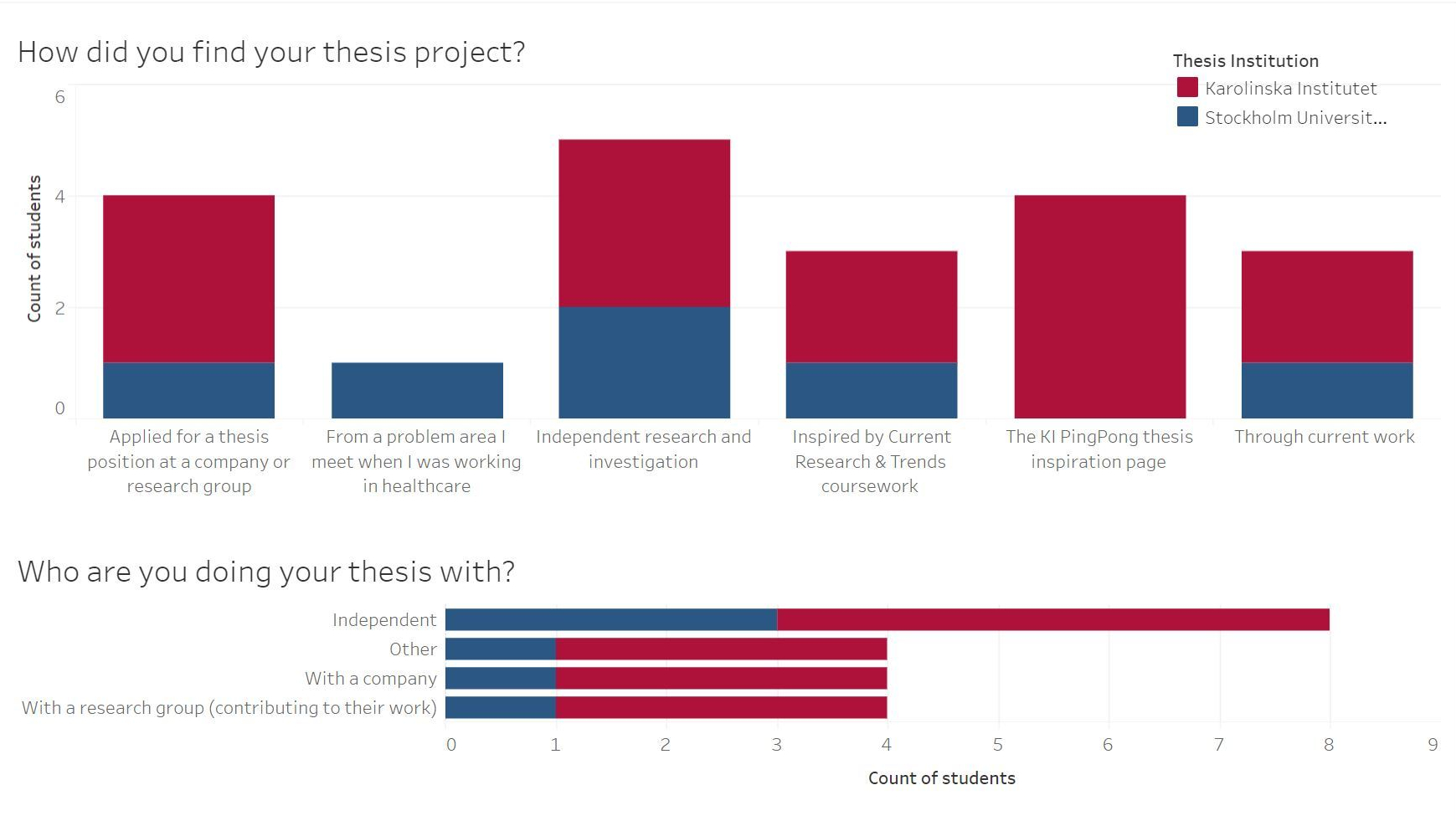
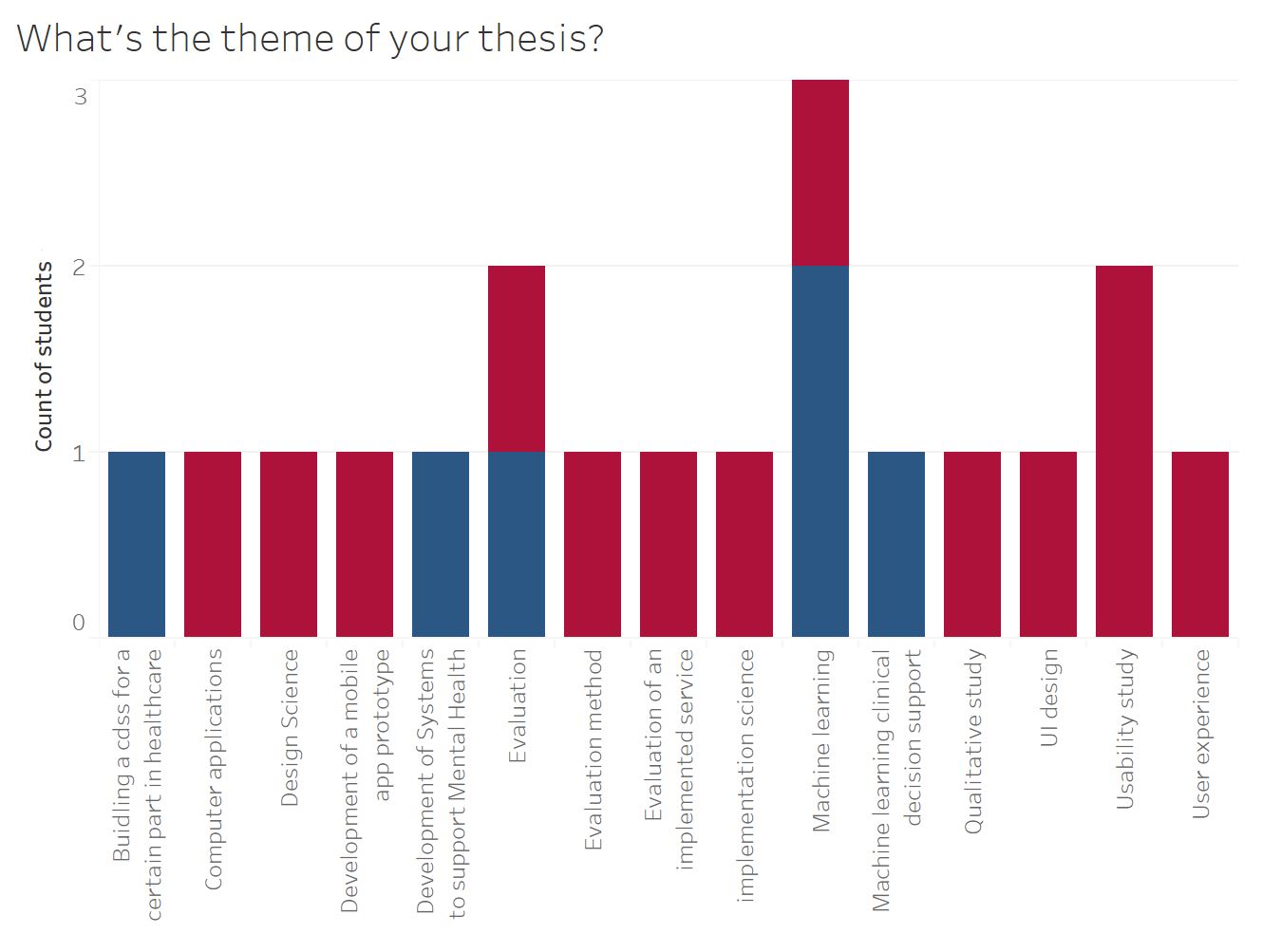
Finally, I leave you with some pieces advice from the students who responded to the survey. The most consistent word of advice is to start early! Good luck and always ask for help when you need it.
“It will be good if they start thinking about thesis after one year of masters where they get concrete idea on what field they are good at working. Then start networking in Linked in until you find desired. My thesis hunt was challenging as well as interesting to get a chance to talk with as many people as possible. I enjoyed.”
“Choose a topic that you really like. read papers. don’t stress :)”
“Choose relevant topics based on personal interests and/or previous experience, and start in the third semester to search companies that work in the same area, contact them and pitch a couple of extra ideas that you could deploy with them using their existing projects. Most companies are willing to receive students when they have a decent plan that benefits equally both the company with new solutions and students with hands-on experience.”
“start looking early and make connections with other organizations or professors. the projects offered are very few, for swedish speakers or just plain boring. be prepared to be working mostly alone as feedback from swedish supervisors is often useless and promises to help withy finding participants are often not kept.”
“be well stocked on coffee an anti depressants”
” 1. Use the last course, current research and trends, as a springboard for your thesis. 2. Ask research groups if they have thesis projects available.”
“Start contacting a third party at least 6 months before submitting thesis proposal if you want to do thesis outside KI/SU”
“Start writing early. Allow adequate time for analysis of results. When you loose confidence in yourself, find a way to be inspired again e.g. by contacting your supervisor.”
“Have a clear idea what you want to do and pick a topic that you think is fun and interesting. Don’t be afraid to do your thesis alone, in my opinion it is much easier :)”

0 comments